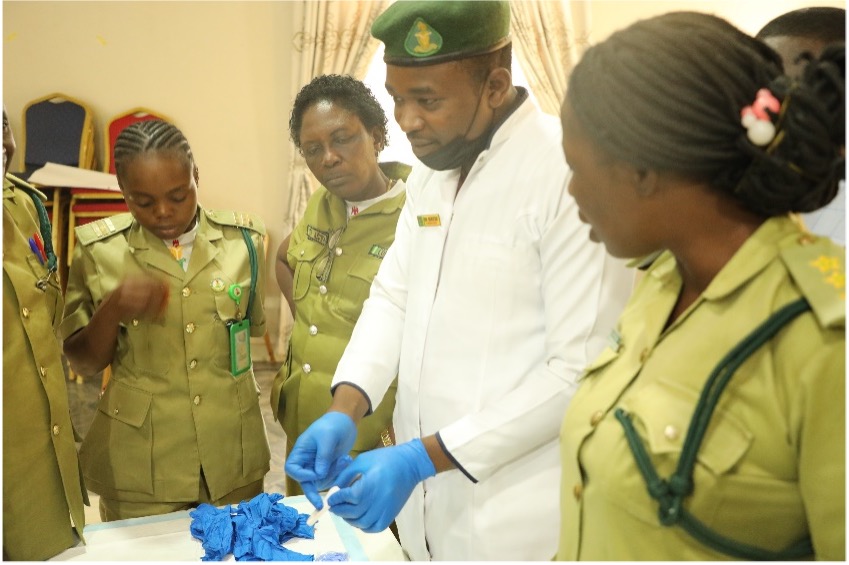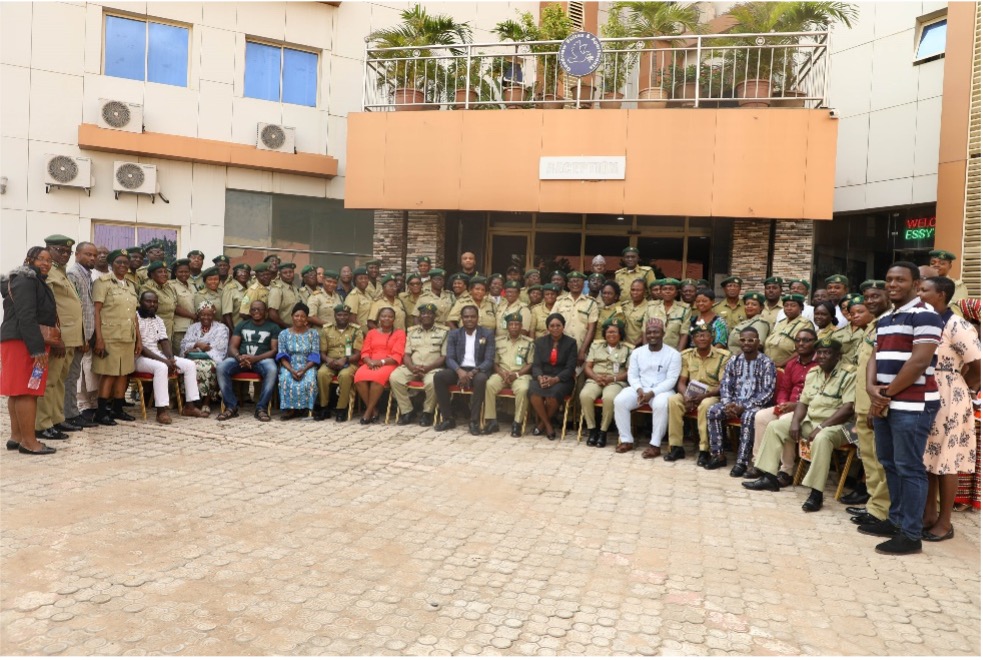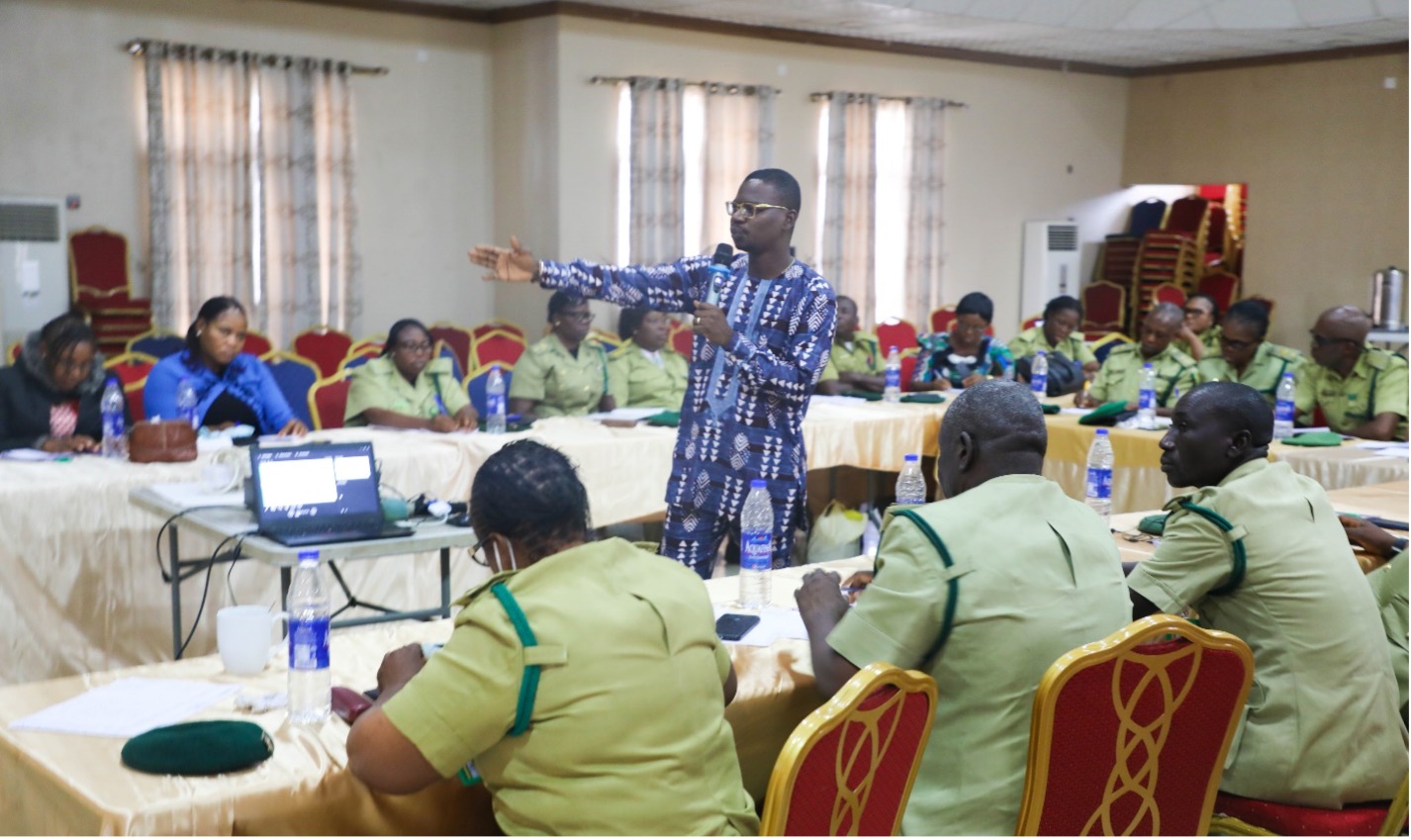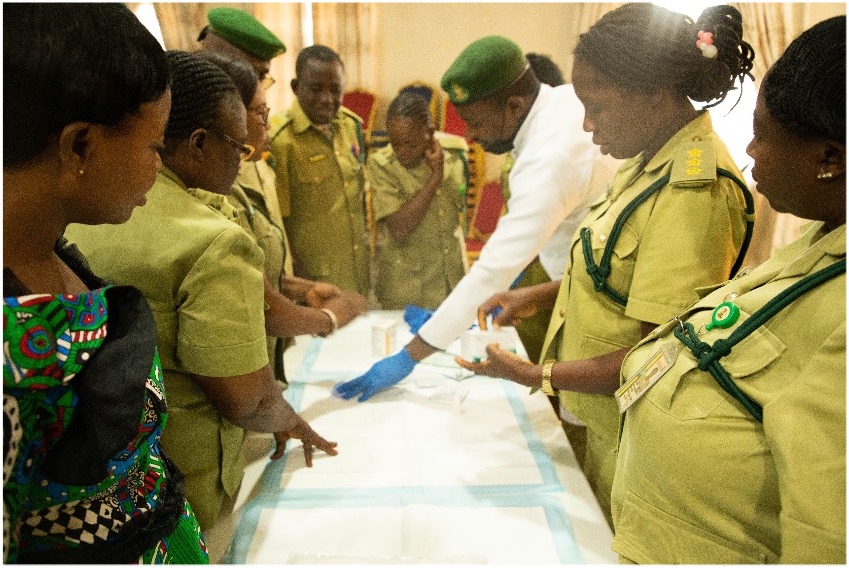
According to the United Nations Office on Drugs and Crime (UNODC) survey on HIV in Nigerian Custodial Centers, 2.8% of people are living with HIV compared to 1.4% of people in the general population. The prevalence is higher among female inmates (6.9%) compared to males (2.7%). The high HIV prevalence, and HIV risk behaviours, pose a threat not only to the people in prisons but also to those who work in custodial centers and their contacts. This is worsened by the fact that most health workers in the custodial centers who are occupationally assigned to care for the inmates lack adequate capacity to provide the needed health care support efficiently.
Hence, FHI 360’s Global Fund NAHI project, in partnership with the National Agency for the Control of AIDS (NACA), National STI Control Program (NASCP), UNODC and other partners, conducted a 5-day training between the 15th and 19th of August 2022 on STI, HIV Testing Services (HTS) and Antiretroviral Therapy (ART) for selected health workers in supported custodial centers across the 13 states implementing Key Populations (KPs) programs. The training provides participants with proper screening and counselling for HIV, Tuberculosis, Hepatitis B, Hepatitis C and STIs and promotes ART services uptake in the custodial centers.
Therefore, a well-coordinated continuing education of HIV/AIDS and Sexually Transmitted Infections (STIs) management for all categories of health-care workers in custodial centers is recommended as a vital strategy in the crusade against the epidemic. To this end, the FHI 360 Global Fund NAHI project in partnership with the National Agency for the Control of AIDS (NACA), National STI Control Program (NASCP), UNODC and other partners conducted 5 days training between 15th and 19th of August 2022 on STI, HIV Testing Services (HTS) and Antiretroviral Therapy (ART) for selected health workers in supported custodial centers across the 13 states where the grant is implementing Key Populations (KPs) programs. More specifically, the training enhanced the capacity of the trainees on providing proper screening and counselling for HIV, Tuberculosis, Hepatitis B, Hepatitis C and STIs, and to support in promoting ART services uptake in the custodial centers. As a key recommendation for referral purposes, the trainees were advised to make all referrals to the project supported One Stop Shop and KP friendly public health facilities for access to a wide range of services that may not be available at the custodial centers. Furthermore, upon discharge from custodial centers, the clients will be transferred out to public health facilities based on clients’ preference using the national referral directory and in line with national care and referral model for custodial centers.
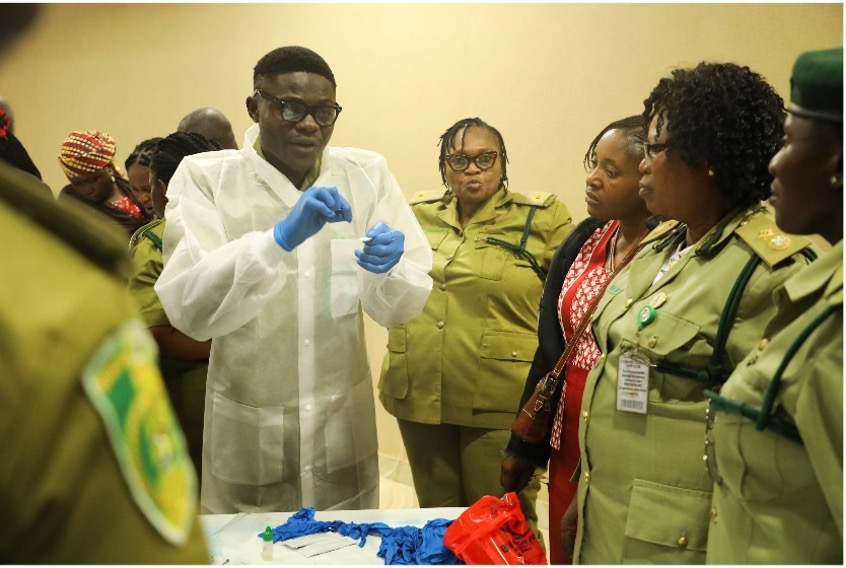
A total of 73 (38 males and 35 females) officers comprising Doctors, Nurses, Pharmacists and Lab Scientists from selected custodial centers attended the training. At the end of the training, the participants attested to a significant knowledge gain. A post-test indicated an average score of about 70% compared to the pre-test average score of about 30% at the commencement of the training.
One of the participants, Helen Udum, a Pharmacist from the Jos Custodial Center, Plateau State Command, said the training was an eye-opener. “I did not know that people in closed settings are twice at risk of contracting HIV compared to those in the general population. Also, I did not know I needed to conduct one-month pre-counselling with an inmate before their release.”
As a key recommendation for referral purposes, the trainees were advised to make all referrals to the project-supported One Stop Shop and KP-friendly public health facilities for access to a wide range of services that may not be available at the custodial centers. Furthermore, upon discharge from Custodial centers, the clients will be transferred out to public health facilities based on clients’ preference using the national referral directory and in line with the national care and referral model for custodial centers.
Sani Khali, one of the training facilitators from NASCP, stated, “This training had significantly impacted the officers’ knowledge on the provision of HIV services, ranging from the testing to treatment and referrals and linkages to HIV care and support services unavailable in my custodial center. It has also expanded their knowledge of the management of Tuberculosis and other health-related conditions.”
Also, Kelvin Mbaso, who works with the Nnewi Custodial Center, Anambra State Command, said, “Before coming to this training, I had ample knowledge of HIV management for people in Custodial center, but inadequate capacity on how to use the latest technology for HIV screening and management. I can boast that I can now observe standard HIV testing, counselling, and treatment procedures for inmates.” Continuous HIV/AIDS and Sexually Transmitted Infections (STIs) management for all categories of healthcare workers in custodial centers is recommended as a vital strategy in the crusade against the epidemic.
